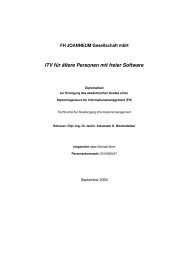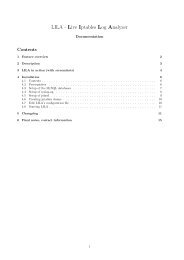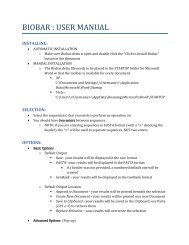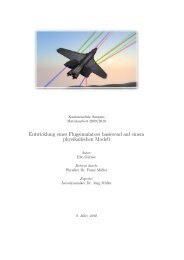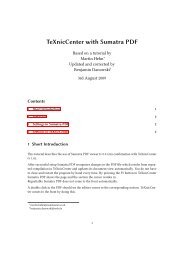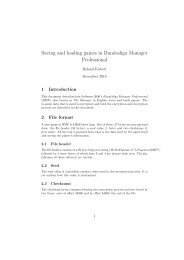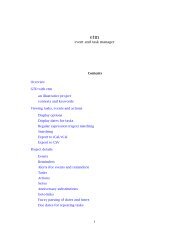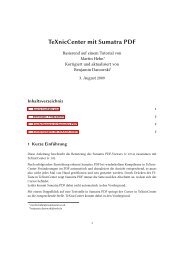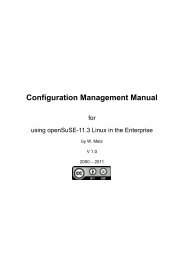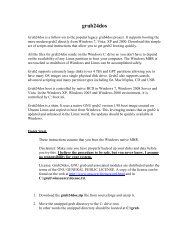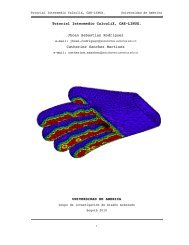Easy Java Websites (EJW)
Easy Java Websites (EJW)
Easy Java Websites (EJW)
You also want an ePaper? Increase the reach of your titles
YUMPU automatically turns print PDFs into web optimized ePapers that Google loves.
<strong>Easy</strong> <strong>Java</strong> <strong>Websites</strong> Configuration<br />
NOTE: With configuration based requests everything else is the same as<br />
configuration free requests (see configuration free documentation).<br />
<strong>EJW</strong> provides a completely optional, but simple, XML configuration mode which consists of:<br />
<br />
<br />
<br />
<br />
<br />
<br />
<br />
<br />
<br />
<br />
<br />
This mode provides the ability for class and method reuse, passing in static parameters, regular<br />
expression matching of URIs, soft coded URIs, and soft coded messages. <strong>EJW</strong> configuration<br />
even allows overriding configuration free and other configurations. The configuration mode also<br />
provides for XML defined security, forwarding, redirects and validation.<br />
Requests<br />
Requests allow you to associate a piece of <strong>Java</strong> executable code to a web request. All<br />
parameters, security roles, forwards, redirects, and validations are used in the context of a<br />
request, and a request can have any number of each.<br />
Syntax:<br />
<br />
Id The request Id is equal to the value returned by<br />
request.getRequestURI(), with all leading path<br />
information removed, leaving only the filename<br />
portion of the URI. The request Id must also be



